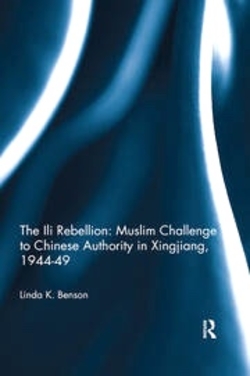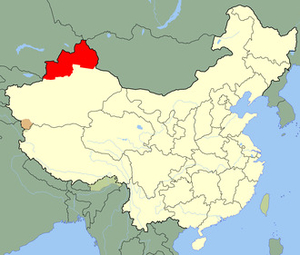 The Ili Rebellion consisted of an attempt by Turkic Muslims in a small region of Xinjiang province, in the far northwest of China, to create an independent Muslim state. The rebels intended that their East Turkestan Republic would control the whole of Xinjiang, after which they would expel the Han Chinese. The rebellion began in November 1944 and resisted efforts to suppress it by the Nationalist forces of Chiang Kai-shek; it collapsed only on October 20, 1949, just nineteen days after the People's Republic of China was proclaimed in Peking.
The Ili Rebellion consisted of an attempt by Turkic Muslims in a small region of Xinjiang province, in the far northwest of China, to create an independent Muslim state. The rebels intended that their East Turkestan Republic would control the whole of Xinjiang, after which they would expel the Han Chinese. The rebellion began in November 1944 and resisted efforts to suppress it by the Nationalist forces of Chiang Kai-shek; it collapsed only on October 20, 1949, just nineteen days after the People's Republic of China was proclaimed in Peking.
Benson, an assistant professor at Oakland College in Rochester, Michigan, has done a superb job of piecing together information on this consequential but obscure incident. Her research in the British, American, and Republic of China archives was supplemented by readings in Russian and Turkic materials, as well as by a host of interviews.
 The Second East Turkestan Republic's approximate borders. |